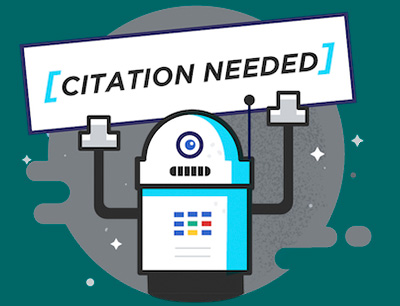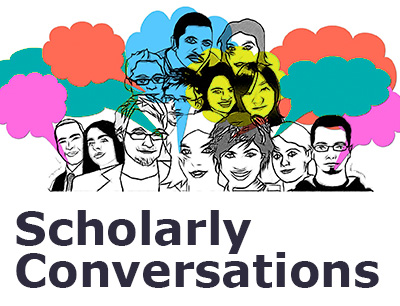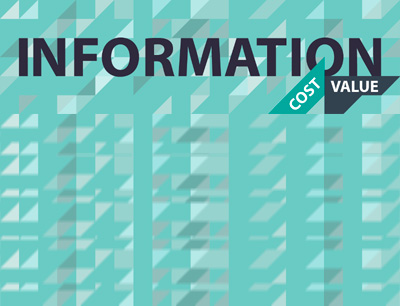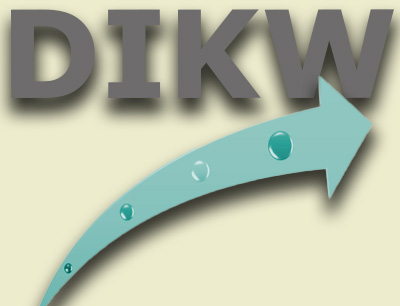Lessons - Newest First
Below, you can peruse all current NLA lessons. Each lesson takes an average of 8-15 minutes for students to complete. If you would like to use any of these free lessons, please visit the Get Lesson Links page for information on how to receive lesson links.
Reading Scientific Research
 Academic research articles have a structure and language that is different from our other reading materials such as textbooks. This lesson can help students new to academic research understand these differences and learn strategies for finding information in such articles.
Academic research articles have a structure and language that is different from our other reading materials such as textbooks. This lesson can help students new to academic research understand these differences and learn strategies for finding information in such articles.
 This lesson is also available in the Peer-Reviewed Instructional Materials Online project database.
This lesson is also available in the Peer-Reviewed Instructional Materials Online project database.
Mapped to ACRL Framework
- Searching as Strategic Exploration, knowledge practice 8
Lesson created by Alice Anderson, Ashley Stark, Prasanna Vaduvathiriyan, Rachel Vukas, and Robyn Hartman in 2018.
Citations
 Citations are more than just a formality that protects against plagiarism. They allow individuals to participate in a scholarly conversation that is taking place among researchers in a specific field. In this lesson, students will explore types of citations and how citations can be used in academic writing.
Citations are more than just a formality that protects against plagiarism. They allow individuals to participate in a scholarly conversation that is taking place among researchers in a specific field. In this lesson, students will explore types of citations and how citations can be used in academic writing.
Mapped to ACRL Framework
- Information Has Value, knowledge practice 1; disposition 3
- Scholarship as Conversation, knowledge practice 1; disposition 1
Lesson created by Robyn Hartman, Julie Hartwell, Geoffrey Iverson, Eric Kowalik, Kendall Roemer, and Matt Upson in 2016.
Scholarly Conversations
 Jumping into research on a specific subject may feel overwhelming when faced with the vast amount of information that has been published on the subject. In this lesson, students will discover how research is like a conversation that takes place between scholars in a field and will investigate ways they can become part of the conversation over time.
Jumping into research on a specific subject may feel overwhelming when faced with the vast amount of information that has been published on the subject. In this lesson, students will discover how research is like a conversation that takes place between scholars in a field and will investigate ways they can become part of the conversation over time.
 This lesson is also available in the Peer-Reviewed Instructional Materials Online project database.
This lesson is also available in the Peer-Reviewed Instructional Materials Online project database.
Mapped to ACRL Framework
- Scholarship as Conversation, knowledge practice 6; disposition 1
Lesson created by Alice Anderson, Ashley Flinn, Julie Hartwell, Heather Healy, Geoff Iverson, Sara Kearns, Kate Otto, Ashley Stark, and Rachel Vukas in 2016.
Question Authority
 What makes someone an authority on a topic? How do you know when to trust what someone has said or written? In this lesson, students will learn to identify authoritative voices and discover that authority is both constructed and contextual.
What makes someone an authority on a topic? How do you know when to trust what someone has said or written? In this lesson, students will learn to identify authoritative voices and discover that authority is both constructed and contextual.
Mapped to ACRL Framework
- Authority is Constructed and Contextual, knowledge practices 3 and 4; disposition 1
Lesson created by Andrea Baer, Ashley Flinn, Melia Fritch, Robyn Hartman, Heather Healy, and Joelle Pitts in 2016.
Value of Information
 With the vast amount of information that can be found as quickly as a mouse click, it is easy to think that all information is free. However, information and access to it is paid for by someone and is not all created equally. In this lesson, students will explore the value and cost of information and learn how to make wise information decisions.
With the vast amount of information that can be found as quickly as a mouse click, it is easy to think that all information is free. However, information and access to it is paid for by someone and is not all created equally. In this lesson, students will explore the value and cost of information and learn how to make wise information decisions.
Mapped to ACRL Framework
- Information Has Value, knowledge practice 7; disposition 2
Lesson created by Alice Anderson, Heather Collins, Ashley Flinn, Julie Hartwell, and Heather Healy in 2016. This is the second version of the lesson.
Data, Information, Knowledge, and Wisdom
 In our knowledge society, individuals must know how to identify and use data, information, and knowledge. In this lesson, students will differentiate each of these and explore how data and information can be synthesized to form knowledge, which can lead to understanding and wisdom.
In our knowledge society, individuals must know how to identify and use data, information, and knowledge. In this lesson, students will differentiate each of these and explore how data and information can be synthesized to form knowledge, which can lead to understanding and wisdom.
Mapped to ACRL Framework
- Information Creation as Process, knowledge practices 5 and 7; disposition 4
- Information Has Value, dispositions 2 and 3
Lessons created by Alice Anderson, Heather Collins, Ashely Flinn, and Julie Hartwell in 2015.
Evidence-Based Practice
 Evidence-based practice is a five-step process. The second step, acquire, means to conduct a thorough, focused search and select the highest quality evidence. This lesson addresses how one matches a clinical question to the types of research evidence.
Evidence-based practice is a five-step process. The second step, acquire, means to conduct a thorough, focused search and select the highest quality evidence. This lesson addresses how one matches a clinical question to the types of research evidence.
 This lesson is also available in the Peer-Reviewed Instructional Materials Online project database.
This lesson is also available in the Peer-Reviewed Instructional Materials Online project database.
Mapped to ACRL Framework
- Research as Inquiry, knowledge practice 4
Lesson created by Alice Anderson, Heather Collins, Holly Luetkenhaus, Debbie Thomas, and Rachel Vukas in 2017.
Access Matters
 Information is inherently valuable. Access to it, or lack of access, has the potential to affect the quality of one’s life. In this lesson, students will learn how access to information shapes people’s lives and how they can make informed decisions related to access to information in their lives and in their communities.
Information is inherently valuable. Access to it, or lack of access, has the potential to affect the quality of one’s life. In this lesson, students will learn how access to information shapes people’s lives and how they can make informed decisions related to access to information in their lives and in their communities.
Mapped to ACRL Framework
- Information Has Value, knowledge practice 6; disposition 4
Lesson created by Heather Collins, Cristina Colquhoun, Ashley Flinn, Melia Fritch, Heather Healy, Eric Kowalik, Joelle Pitts, and Matt Upson in 2016.
Types of Information
 Information can come from an assortment of sources and fulfill a variety of information needs. Knowing the type of information needed and where it can be found is a crucial skill for individuals to have. In this lesson, students will examine types of publications and discover use cases for popular, professional/trade, and scholarly sources of information.
Information can come from an assortment of sources and fulfill a variety of information needs. Knowing the type of information needed and where it can be found is a crucial skill for individuals to have. In this lesson, students will examine types of publications and discover use cases for popular, professional/trade, and scholarly sources of information.
Mapped to ACRL Framework
- Information Creation as a Process, knowledge practices 4 and 6; disposition 2
Lesson created by Alice Anderson, Heather Healy, Kate Otto, Joelle Pitts, and Julie Zimmerman in 2015.
Search Strategies
 There is more to a good search than just entering a few key words. In this lesson, students will examine key search strategies that will help them efficiently find the best information to fit their needs.
There is more to a good search than just entering a few key words. In this lesson, students will examine key search strategies that will help them efficiently find the best information to fit their needs.
 This lesson is also available in the Peer-Reviewed Instructional Materials Online project database.
This lesson is also available in the Peer-Reviewed Instructional Materials Online project database.
Mapped to ACRL Framework
- Searching as Strategic Exploration, knowledge practices 5, 7, and 8; dispositions 1 and 2
Lesson created by Alice Anderson, Sara K. Kearns, Joelle Pitts, and Rachel Vukas in 2015. This is the second version of the lesson.
Ask the Right Questions

When looking for information, one of the first steps is to develop a research question to figure out the scope of what exactly is needed. In this lesson, students will explore what it takes to narrow a search in order to find the best information.
Mapped to ACRL Framework
- Research as Inquiry, knowledge practices 1, 2, and 3
- Searching as Strategic Exploration, knowledge practice 1
Lesson created by Alice Anderson, Heather Collins, Melia Fritch, Joelle Pitts, and Ashley Stark in 2015. This is the second version of the lesson.
Choosing Information Paths
 Information can be packaged in a variety of digital formats that have their own properties and can lead down certain information paths. In this lesson, students will explore properties of digital formats in order to identify the best format to meet their information needs.
Information can be packaged in a variety of digital formats that have their own properties and can lead down certain information paths. In this lesson, students will explore properties of digital formats in order to identify the best format to meet their information needs.
Mapped to ACRL Framework
- Information Creation as Process, knowledge practices 2, 5, 7, and 8; dispositions 3 and 4
- Information Has Value, dispositions 2 and 3
Lesson created by Heather Collins, Holger Lenz, and Marc Nash in 2013.
